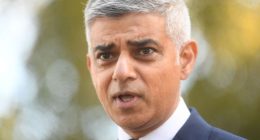
Following the liquidity crisis and acquisition of cryptocurrency exchange FTX, Binance CEO Changpeng “CZ” Zhao said his exchange will soon start a Proof-of-Reserves audit system to allow verification of its digital asset holdings.
In a Nov. 8 Twitter post, Zhao pledged to implement a Proof-of-Reserve mechanism at Binance to provide “full transparency” through the use of Merkle Trees — a data structure used to encode blockchain data more efficiently and securely.
All crypto exchanges should do merkle-tree proof-of-reserves.
Banks run on fractional reserves.
Crypto exchanges should not.@Binance will start to do proof-of-reserves soon. Full transparency.— CZ Binance (@cz_binance) November 8, 2022
A Proof-of-Reserve audit is ordinarily conducted by an independent third party to ensure the custodian’s assets are owned as claimed.
The Binance CEO’s intention to implement Proof-of-Reserves comes after Binance agreed to buy rival cryptocurrency exchange FTX on Nov. 8, who’s been rumored to be on the brink of financial collapse despite CEO Sam Bankman-Fried initially dismissing the claims.
Cointelegraph contacted Binance to confirm if the exchange had begun implementing a Proof-of-Reserve system but did not immediately receive a response.
Chainlink (LINK) CEO Sergey Nazarov expressed his views in a Nov. 8 tweet that a cryptographic-based Proof-of-Reserves mechanism could paint investors with a more clear picture of the solvency situation of a trading venue or financial firm, and “is becoming the new industry standard.”
It is clear that cryptographically proving the solvency of trading venues and financial institutions is becoming the new industry standard. Proof of Reserves is a great example of a cryptographically guaranteed financial world that starts in crypto going on to mainstream finance. https://t.co/eZw1pj5706
— Sergey Nazarov (@SergeyNazarov) November 8, 2022
Meanwhile, crypto exchange Kraken has already implemented its “advanced cryptographic accounting procedure” to allow users to verify their token balances since Feb. 2022.
Crypto exchange OKX also announced its plans to roll out a Merkle tree-based Proof-of-Reserves audit system in a Nov. 8 Twitter post —- something they consider to be an “important step” in establishing a “baseline trust” in the industry.
Related: Binance’s FTX acquisition seen as chess move by crypto community
The idea of more Proof-of-Reserve audits received near-full backing from the Twitter community, with crypto industry figures weighing in on the move by Binance.
Host of The Daily Gwei podcast, Anthony Sassano, and founder of open-source crypto exchange ShapeShift, Erik Voorhees, both suggested Proof-of-Reserves are already integrated into decentralized finance (DeFi) and automated by smart contracts.
Transparent proof-of-reserves:
✅ Wild West Defi
❌ Regulated and Compliant Centralized Exchanges https://t.co/T8QxZ4VOTE— Erik Voorhees (@ErikVoorhees) November 7, 2022
The founder of crypto market intelligence platform Messari, Ryan Selkis, took things one step further, arguing that regulators should direct their attention to focus on the more centralized players in the industry.
The fact we are debating DeFi protocol regulation before responsible disclosures like proof-of-reserves and liquidity from the mega-funds like a16z and Alameda shows just how far off the ball we are on policy right now.
— Ryan Selkis (@twobitidiot) November 8, 2022
But not all agreed. Antonio Juliano, founder of crypto derivatives trading platform dYdX argued that a Proof-of-Reserves wouldn’t disclose all necessary information needed to verify an exchange’s holdings.
The issue is that CEXs *can’t* do proof of reserves
So what if you show a wallet with $20B? How do you know the sum of user balances isn’t $30B?
How do you know if the entity has outstanding loans? How do you know what contracts they’ve entered into? https://t.co/lbL6YGD5Ze
— Antonio | dYdX (@AntonioMJuliano) November 8, 2022
Read More: World News | Entertainment News | Celeb News
Cointelegraph







